We were delighted to welcome Philippe Chalmin, Commodities Market Specialist & Founder of Cercle Cyclope, to our investment conference in Lyon on September 28, 2023.
Below is a retrospective of his speech.
Commodities at the heart of global geopolitics
For a long time, men dreamed of getting rid of materials. Modern alchemy would have led to a perpetual cycle of destruction and rebirth: the material loop would make it possible to forget fossil fuels and minerals and the plants would be enough for themselves. This dream remains an ultimate goal, but the world is still so far away from achieving it in the third decade of the twentieth century.
A quick review of autumn 2023 news is in order, after the summer months: the war in Ukraine, instability in the Sahel, tensions with China, climate concerns, and the return of El Niño made the headlines, but the commodities markets were never far away.
Ukraine made grain market news due to Russia’s decision not to renew the grain corridor agreement. Russia also bombed the Ukrainian ports on the Danube. It is increasingly difficult for Ukrainian cereals (wheat, but especially maize) to get out of the country, and Russia, the world’s largest wheat exporter, is using this ‘food weapon’, particularly with regard to Africa, in addition to Wagner’s turpitudes. In the field of energy, Europe has learned to live without Russian gas, but, as a result, it is increasingly dependent on its liquefied natural gas (LNG) suppliers, such as the US, Qatar, and Australia. In late August, threats of strikes in the Australian gas industry caused a fairly sharp rise in prices, albeit in no way comparable to the ‘madness’ of 2022 when gas prices in Europe and Asia increased tenfold. Regarding oil, the unlikely alliance between Saudi Arabia and Russia is bearing fruit: prices rallied despite sanctions on Russian exports (but Russian crude oil may become Indian diesel…).
To avoid dependence on fossil fuels as well as the geopolitical nature of oil and gas, the time for renewable energies has come, but, here too, new dependencies must be taken into account: ‘electric’ metals, of course, such as lithium, cobalt, and nickel, but primarily copper. But, in these areas beyond the mine, metallurgy is the real bottleneck with China’s often dominant position: China demonstrated this position in July by deciding to limit its germanium and gallium exports (among other things). Regarding nuclear power, it still depends on its uranium suppliers, Kazakhstan first (in Russia’s orbit, but with some ambiguity) and then Niger, which brings us back to the instability in the Sahel. The final straw was the coup in Gabon, a small oil and manganese producer.
In many other countries, it is obvious that the commodities market is the source of a genuine geopolitical curse : it maintains the obtuse and general kleptocratic sovereign power. From Venezuela to the Democratic Republic of Congo, there are plenty of examples. China often exploits this, finding the resources it lacks in Africa and Latin America. Only a few countries resist, such as Australia, which held firm in the face of the Chinese embargo on Australian products including coal, barley, cotton, and… wine. Australia had insisted that an investigation be conducted into the Chinese origins of Covid. Beijing had not appreciated this, but the sanctions taken (which did not apply to iron ore) hurt China more than Australia.
In late August 2023, for the first time in three years, a vessel transported Australian barley to China. Chile is considering nationalising lithium production.
Finally, summer 2023 was marked by strong weather instability and the highly probable return of El Niño, a marine current inversion phenomenon in the Pacific that affects Oceania, Asia, the Americas, and East Africa and results in droughts or, on the contrary, higher precipitation. El Niño is expected to strongly influence agricultural yields in 2023/2024. Already, the monsoon will not provide enough precipitation in India : the government has decided to embargo a large portion of rice (India is the world’s largest exporter) and sugar exports. Australia could see its wheat production decrease by a third (following, it is true, a bumper year). After surging in 2022, global agricultural prices could once again be stretched in 2024, with another threat, that of purchases by China, which has also become the world’s leading importer.
From this point of view, the geopolitical nature of Chinese imports of commodities is very bright : in terms of energy, oil comes from Russia (as for India, by the way), Saudi Arabia, Iran, and Venezuela. Natural gas comes from Russia via pipelines (the famous ‘Power of Siberia’), but LNG comes from Qatar, in particular. China, on the other hand, was unable to limit its dependence on Australian coal and iron ore and was forced to ignore Australia’s impertinence about the origin of Covid. More and more minerals and metals are being mined and processed by Chinese companies that dominate nickel in Indonesia, cobalt in the DRC, and iron ore in Guinea, which are present in Peru and, to a lesser extent, in Chile. Finally, regarding agriculture, China sought to resolve its dependence on the US by favouring purchases of soybeans and maize from Brazil and Argentina. They are China’s BRICS partners (Brazil and Russia) and participants of the August 2023 summit (Saudi Arabia, Iran, Emirates, and Argentina).
This quick review of global commodities market news in early autumn 2023 illustrates their geopolitical dimension, both at the origin of many internal and external conflicts, as well as being a sounding board with direct consequences for the global economy. In the late 1930s, a study on a circle close to the Labour Party (the Fabian Society) was published in the UK.
Its title ‘Raw Materials, War Materials’ is still very topical.


